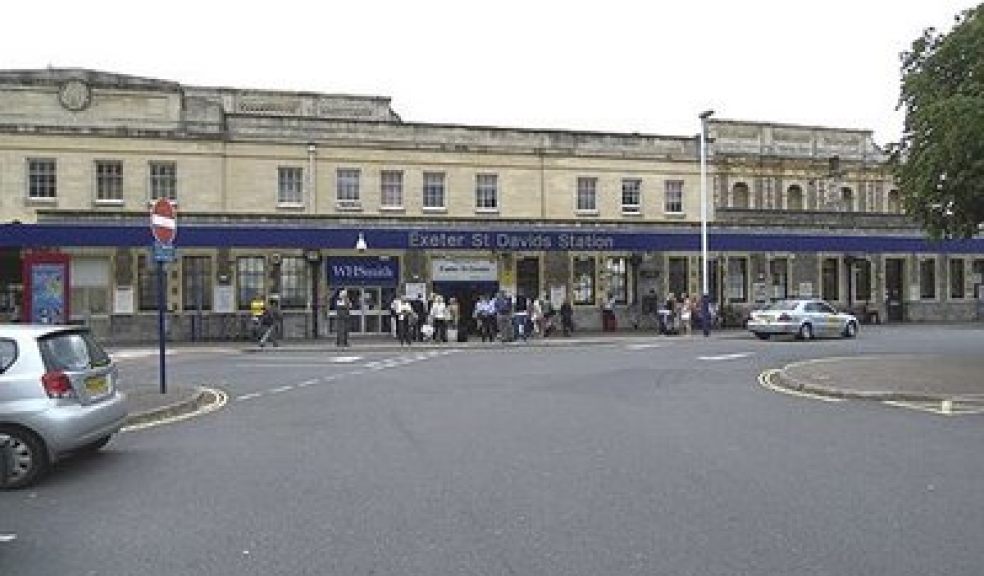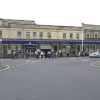
Rail protests against South West fare hikes
Average train fares have risen nearly three times faster than wages since the recession began, according to new analysis published today (Tuesday 11th December) by the TUC’s Action for Rail campaign.
The research shows that between 2008 and 2012 average rail fares increased by 26.6 per cent, with average wages rising by just 9.6 per cent over the same period – well below the rate of inflation.
Train fares are set to outpace wages and inflation again in 2013 after the Association of Train Operating Companies announced a 3.9 per cent increase in average prices last week, with some fares set to rise by as much as 10 per cent from January. By contrast, wages are forecast to rise by just 2.5 per cent according the Office for Budget Responsibility. The only year when average rail fares have been lower than wages and inflation was in 2010 and that was only because fares were set at a time when the economy was going through a rare and worrying period of deflation.
A family of four (two adults and two children) looking to travel to London on an anytime ticket from Plymouth in 2013 will have to pay more than £481 – the average weekly wage.
The findings come as rail unions, transport campaigners and passenger groups joined together this morning to protest against the massive fare hikes. Campaigners were handing out special Christmas cards with a message from the train companies to commuters arriving at 50 train stations across the UK.
The cards’ seasonal message reminds train travellers that as well as fare rises in the New Year, they can look forward to a 2013 packed full of cancelled trains, staff cuts and ticket office closures – all at a time when the train companies are making huge profits.
Action for Rail campaigners will encourage commuters to use the Christmas cards to tell their local MPs of their concern over what is happening to the UK’s railways. The cards urge MPs to back a policy of investment, fair fares and a publicly owned railway that puts people before profits.
Early this morning (11th December), protestors were handing out the campaigning Christmas cards to commuters arriving at Exeter St Davids, Bristol Temple Meads and Southampton Central rail stations.
Recent research by Transport for Quality of Life has shown that rail privatisation is costing taxpayers £1.2bn a year, with train operating companies making large profits on the back of public subsidies. Their analysis also showed that eliminating this £1.2bn-a-year wastage could result in an 18 per cent cut in rail fares across the board.
TUC General Secretary Designate and chair of Action for Rail Frances O’Grady said: “Train fares have massively outstripped wages and inflation, even during the recession. Train operating companies seem to have completely ignored the fact that real-term incomes and living standards have fallen and have ploughed ahead with eye-watering price-hikes.
“Average fare increases have risen at nearly three times the rate of average wages since 2008. However, many commuters have seen the price of travelling go up even faster with some fares increasing by as much as 10 per cent per year in recent times.
“Today’s protests should act as an urgent wake-up call to ministers. Our current privatised system, which is costing taxpayers a staggering £1.2bn a year, may be a wonderful Christmas present for train companies but is a huge squeeze on the public purse and commuters.”
ASLEF General Secretary Mick Whelan said: “It’s business as usual for the train companies following Virgin’s risk-free extension on West Coast and the Laidlaw report’s endorsement of the franchising system.
“This year’s fare hike is all the more painful following George Osborne’s announcement of deeper cuts and austerity last week, and threatens to plunge many thousands of passengers yet further into transport poverty.
“At a time of economic uncertainty the government should be trying to help people get around, not restrict them.”
RMT General Secretary Bob Crow said: “With the West Coast fiasco still playing out, and with savage fare increases only a few weeks away, the campaign for renationalisation of Britain’s railways is stepping up a gear.
“To gauge what is at stake when corners are cut we need look no further than the cracked rails on the East Coast mainline and the continuing tide of deaths on level crossings and out on the tracks. We are fighting to reverse the reductions in jobs and investment and to end the rip-off of privatisation and halt the tidal wave of cuts in the pipeline under the government’s McNulty plans.
However, First Great Western's Regional General Manager, Julian Crow, said this morning on BBC Radio Devon: "We've done a pretty good job keeping fares low locally. We reduced fares about six years ago by about 20 to 30 per cent and so in real terms passengers are paying less for their local journeys than they did then."





















